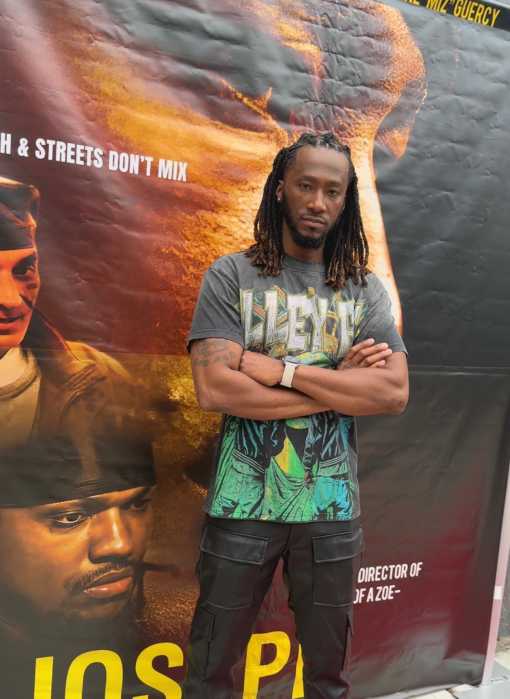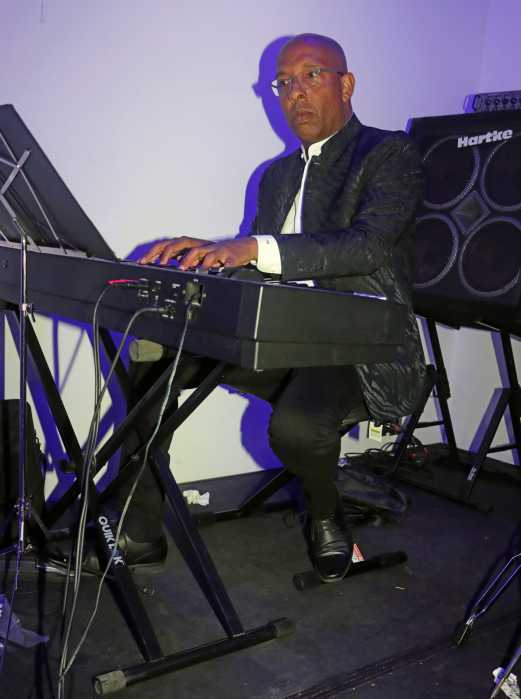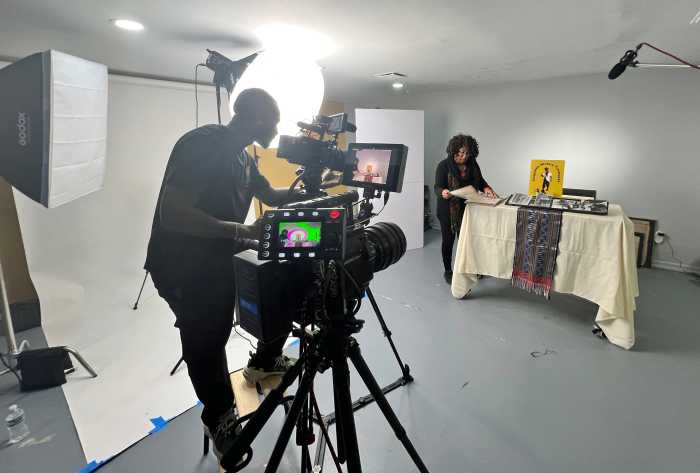On Feb 3, “American Promise” airs on TV, part of PBS’s Point of View-POV series. For 14 years, the documentary film follows two Brooklyn boys, from kindergarten at the elite Dalton School in Manhattan and on. (One of the subjects, Idris, is the filmmakers’ son.)
Garnering nationwide kudos and favorable reviews, most recently, the film is the core of Judith Ohikuare’s December 17 The Atlantic article “When Minority Students Attend Elite Private Schools.” (She tells us that she entered Chapin School in the 6th grade, the second black girl out of 60 students and had been prepared by going through a program called Prep for Pre, a nonprofit organization that filters low-income minority students into New York independent schools.)
The premiere screenings of “American Promise” at the New York Film Festival this fall were to standing ovations. A preview BAM screening in October was to the home crowd, friends of the subjects and the filmmakers who are Fort Greene residents.
Joe Brewster and Michele Stephenson spent 14 years on this film project that began in 1999. Their son, Idris Brewster and his friend Seun Summers, both, who are Black from middle class homes, enter the prestigious Dalton School on the Upper East Side as kindergarteners. They are part of Dalton’s diversity program and are among the few students of color there.
The viewer travels through time with them from school start through high school. And, especially in middle school we experience their painful academic struggles and the frustration of parents Brewster and Stephenson and the Summers. We follow the two at Dalton and later, with Seun at the public high school Benjamin Banneker Academy in Brooklyn, where he transfers.
There are plenty of laughs, quiet gasps, and moments near tears in this 215-minute epic film, an emotional roller coaster of the boys’ lives. After seeing the film, some of the poignant dialogue lives in the viewer’s mind.
Long-term observational films like Aped’s 7-Up series, “Hoop Dreams” and the work of African-American filmmaker Marlon Riggs had impact on filmmakers Brewster and Stephenson who wore the many hats of camera shooters, directors and parents.
Taking its own course through the years, the project shifted for the filmmakers from looking at the Dalton diversity experiment to focusing on the African American male experience and what has been described as the “achievement gap.”
The documentary considers race, class, and opportunity as the boys come of age, authentically revealed through intimate and vulnerable exchanges before the camera, a direct cinema approach to filmmaking.
Since the premieres and preview, there have also been screenings of this film with parent groups around the country. It has opened up dialogue about young black male success.
Additionally, filmmaker Brewster, who is also a psychiatrist and filmmaker/wife Stephenson and Hilary Beard have written the book “Promises Kept,” of the lessons learned from their “American Promise” project. Subtitled “Raising Black Boys to Succeed in School and in Life”, the book’s launch will coincide with the airing of the PBS documentary.
Where “American Promise” raises questions, “Promises Kept” offers insights that the authors derived from their own experiences with the latest research on closing the black male achievement gap.
Brewster’s film credits include the 1996 feature film “The Keeper.” Stephenson’s Panamanian and Haitian heritage has fueled her passion to tackle stories on communities of color.





















